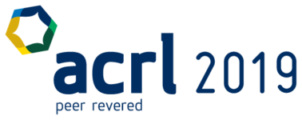Session Description:
In the wake of the 2016 presidential election, academic institutions have seen an upsurge in challenges to academic freedom. Academic librarians have faced a choice whether or not to speak out more about how the current political reality impacts patrons, organizations, and librarians themselves, but these free speech actions have had consequences. Our paper explores how academic librarians have navigated challenges to academic freedom, how their social identities may have influenced their experiences, the push back they may have encountered, and what we can do to protect intellectual free expression in order to authentically engage in our communities.
